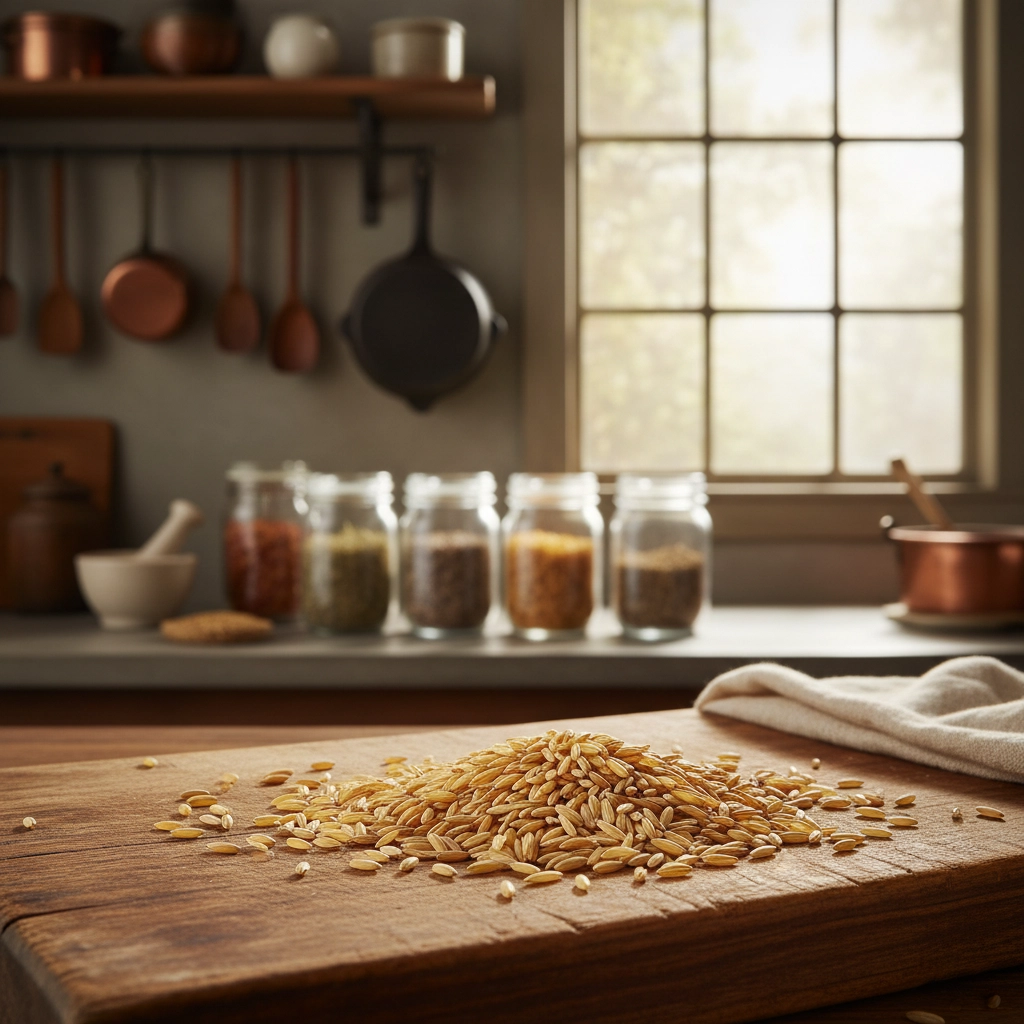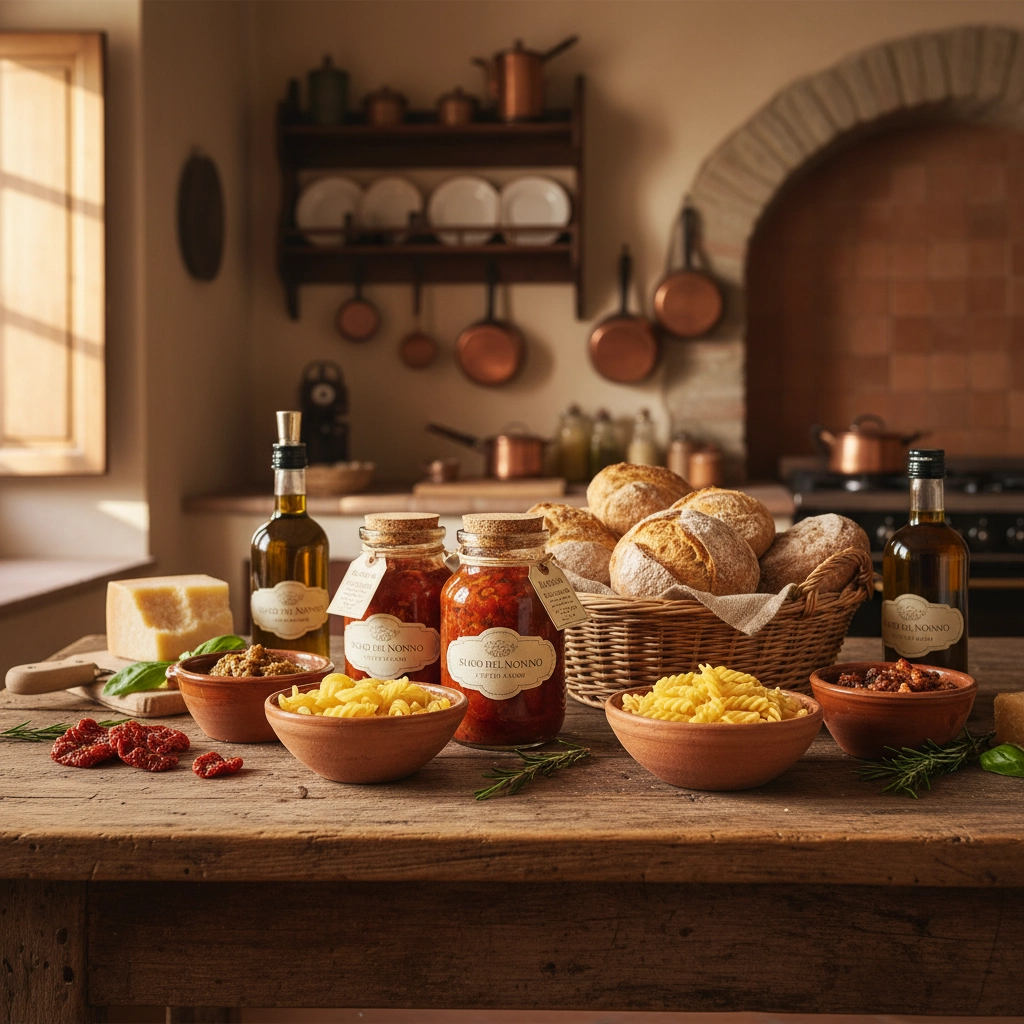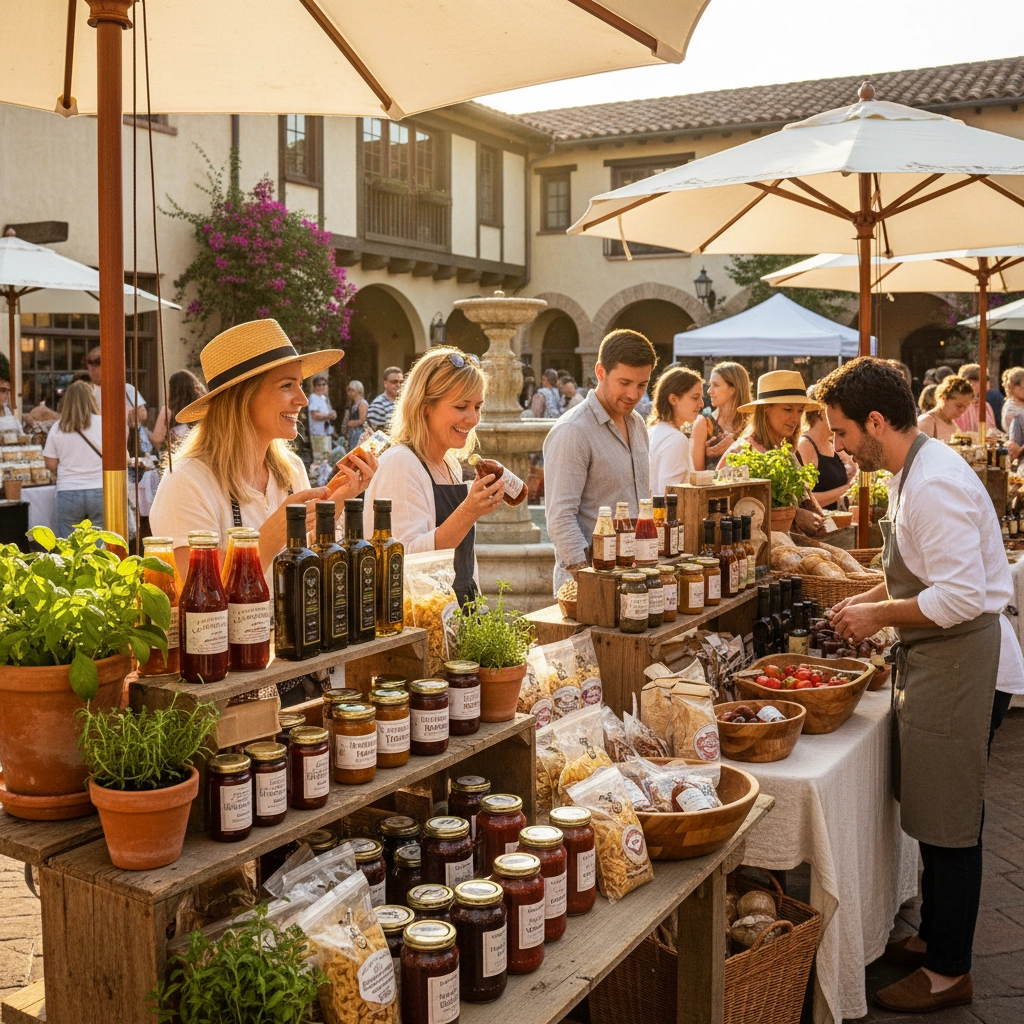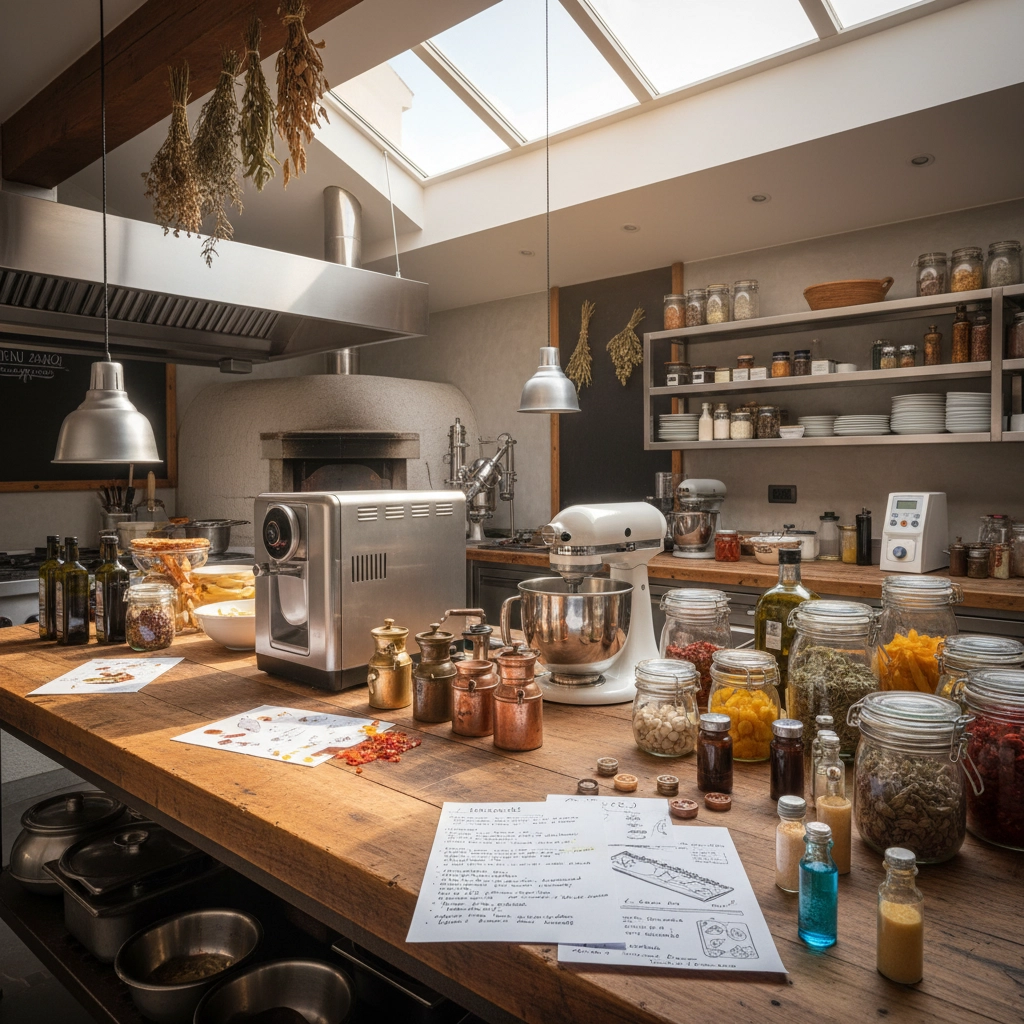
South Carolina Specialty Foods Secrets Revealed: What Big Food Companies Don't Want You to Know
Share
There's something happening in kitchens across South Carolina that most people don't know about. It's a quiet revolution that's been brewing in homes, small businesses, and artisan workshops from Charleston to the Upstate. And frankly, it's the kind of thing that keeps big food executives up at night.
I should know. When I started Apastioli from my own kitchen, making Italian red sauce in small batches, I had no idea I was stepping into a world that corporate America has been trying to erase for decades.
The Heritage They Don't Want You to Remember
Big food companies have spent billions convincing us that mass-produced, shelf-stable products are the pinnacle of convenience and quality. But here in South Carolina, we've been quietly preserving something they can't replicate: authenticity.
Take Carolina Gold rice, for instance. This heirloom grain once made South Carolina the rice capital of America. The nutty flavor, the perfect texture, the way it holds up in traditional dishes like Gullah Red Rice: there's simply no substitute. But you won't find it in most grocery stores because it doesn't fit the corporate model. It can't be mass-produced cheaply enough, and it doesn't have the shelf life that stockholders demand.

That's the first secret: the best ingredients were abandoned not because they weren't good enough, but because they were too good to be profitable at scale.
When I started making sauce, I quickly learned that the tomatoes my Italian grandmother used weren't the same ones sitting in corporate facilities. The difference wasn't just taste: it was philosophy. She cared about the final product more than the profit margin.
The Artisan Advantage That Terrifies Corporate Boardrooms
Here's what big companies don't want you to know: small-batch, locally-made specialty foods aren't just "cute" or "quaint": they're superior in almost every measurable way.
When we make our Classic Italian Red Sauce, we're not worried about surviving eighteen months on a warehouse shelf. We're focused on flavor, nutrition, and creating something that brings families together around the dinner table. No preservatives, no artificial flavors, no corporate compromises.
The same principle applies to everything we create. Our Lowcountry Lunatics hats aren't manufactured in some overseas facility with workers who've never heard of South Carolina. They're made by people who understand the culture, the humor, the pride of this place. There's a difference you can feel.

The Faith Factor They Can't Manufacture
There's another element to South Carolina specialty foods that corporate America simply cannot replicate: the faith and redemption narratives woven into so many of our stories.
Our "Jesus We Thank You" shirts aren't just apparel: they're a declaration. In a world where corporations try to sanitize everything for mass appeal, we're not afraid to stand for something. Faith isn't just a marketing angle for us; it's the foundation of why we do what we do.
This authenticity resonates because people are hungry for something real. They're tired of products created by focus groups and market research. They want to support businesses that have actual values, not just value propositions.
The Sensory Experience They Can't Package
When I started working on our newest venture, the Ascenda unisex scent, I realized something profound about the difference between artisan craftsmanship and corporate production.
Big fragrance companies create scents in laboratories, using synthetic compounds and following market trends. We create ours by hand, blending natural ingredients until we achieve something that tells a story. Ascenda isn't just a fragrance: it's an experience that captures the essence of elevation, of rising above circumstances, of transformation.

You can't get that kind of depth from a product developed by algorithm and approved by committee. It requires the human touch, the willingness to take risks, the patience to let something develop naturally.
The Economic Secret They're Desperately Hiding
Here's perhaps the biggest secret of all: when you buy from South Carolina specialty food producers and artisans, your money doesn't disappear into some corporate black hole. It stays here. It supports families, local communities, and the preservation of traditions that make our state unique.
Every jar of our sauce sold means more resources to invest in better ingredients, to support local suppliers, to create jobs for our neighbors. When you buy mass-produced alternatives, that money flows to shareholders and executives who've probably never set foot in South Carolina.
The South Carolina Specialty Food Association catalog reads like a directory of dreams made manifest: BBQ sauces crafted by pitmasters who've perfected their recipes over generations, artisanal preserves made from fruits grown in Lowcountry soil, seasonings that capture flavors you simply can't find anywhere else.
The Innovation Born from Necessity
What big companies really don't want you to know is that many of the most innovative food products and techniques are coming from small producers like us, not from their massive R&D departments.
We're not constrained by corporate bureaucracy or the need to appeal to the lowest common denominator. If we want to experiment with a new sauce recipe or try a different approach to our fragrance blending, we can do it tomorrow. We can pivot, adapt, and innovate in ways that would take a corporation months or years to approve.

This agility allows us to respond to what our customers actually want, not what market research says they should want. It's why our Lowcountry Lunatics podcast connected with people in ways that focus-grouped content never could.
The Heritage Preservation Mission
Every time someone chooses to support a South Carolina specialty food producer, they're participating in something bigger than a simple transaction. They're helping preserve culinary traditions, supporting local agriculture, and maintaining the cultural identity that makes our state special.
Traditional dishes like Shrimp and Grits or authentic preparations of Gullah Red Rice exist because generations of cooks cared more about preserving flavor and technique than maximizing profit. These aren't just recipes: they're cultural artifacts that connect us to our history.
Big food companies see tradition as an obstacle to efficiency. We see it as the foundation of excellence.
The Quality Revolution
The dirty secret that keeps corporate executives up at night is this: once people taste the difference that comes from authentic, small-batch production, it's hard to go back to mass-produced alternatives.
Our customers don't just buy our sauce once and disappear. They become advocates, sharing their experiences with friends and family. They start reading labels more carefully, asking questions about where their food comes from, and supporting other local producers.

This creates a ripple effect that threatens the entire industrial food system. When people start demanding transparency, quality ingredients, and authentic production methods, the whole house of cards begins to shake.
The Future is Local
What we're seeing across South Carolina: and what big companies are desperately trying to counter: is a return to values-based consumption. People are choosing to support businesses that align with their beliefs, that contribute to their communities, and that produce products they can feel good about.
This isn't a trend that can be co-opted or replicated by corporate marketing departments. It's a fundamental shift in how people think about the relationship between producers and consumers.
When you choose authenticity over convenience, quality over quantity, and local over corporate, you're participating in something that's bigger than any individual purchase. You're helping write the next chapter of South Carolina's culinary story.
The secret is out: we don't have to accept what big food companies want to sell us. We can choose better. We can choose local. We can choose authentic.
And that choice makes all the difference.
